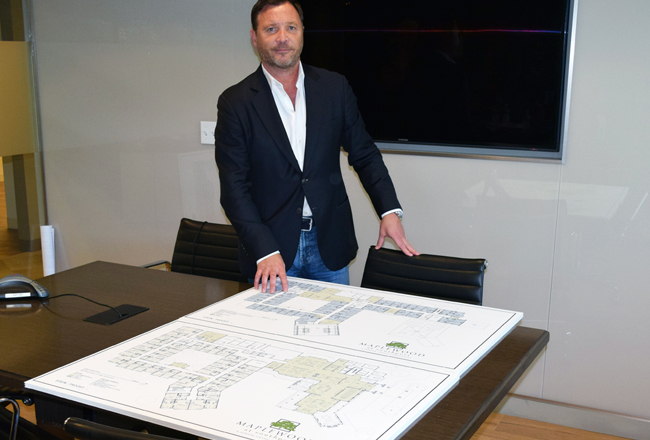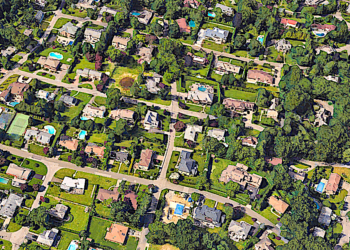
Gregory D. Smith never intended to become involved in the senior housing market. He had a successful career as a real estate investor focused on the multifamily, office and lodging sectors of the commercial property industry. Then one day in 2004, he got a telephone call from his mother.
“My mother works at Danbury Hospital and she said that the building next to the hospital, a defunct nursing home, was for sale,” Smith recalled. “She had talked to one of the hospital administrators and was told there might be an opportunity to buy it.”
Smith had initially hoped to turn the property into an apartment complex, but another happenstance conversation detoured him. “I have a friend in New Jersey involved in senior housing,” he said. “We walked through the Danbury property and he said to me, ”˜Did you ever consider converting this to assisted living?”™ It was 2005 and that industry was fairly young. So I looked into this and I saw there was a need for 75 to 80 units in that market.”
Fast-forward a dozen years. Smith”™s Maplewood Senior Living consists of 13 senior housing communities in Connecticut, Massachusetts and Ohio offering assisted living, respite care and memory care for nearly 1,200 residents; independent living units are an option in three of its four Massachusetts locations. Headquartered in Westport, Smith serves as president and CEO for a company that he described as a “billion-dollar-enterprise.” He declined to disclose the company”™s annual revenues.
It”™s a company with a mission to erase many of the negative stereotypes associated with this sector. Smith bristled at the concept and practice of “warehousing” the elderly in nursing homes and other group facilities, noting that he had family members living in the Maplewood setting.
“We are looking to push the boundaries of experience with exceptional care and services,” he said. “When you walk into one of our communities, you know that you are in a different place. You walk through the buildings and feel good.”
Smith said Maplewood communities are designed to encourage residents to interact with their neighbors and the on-site staff. Common spaces are located throughout the buildings and family members who cannot be present are able to stay connected via cutting-edge technology.
“We have Skype rooms ”” not just a TV with a little monitor and camera system, but full-blown Skype systems where residents can sit during holidays or birthday parties and open gifts and families can engage with them in an environment that makes them feel they”™re actually there.”


Nutritional well-being is a major focus for Smith, a self-described “foodie.” There are open-air kitchens on each floor of the Maplewood residences where chefs discuss menus and ingredients with the residents. In 2014, the company acquired a 50-acre farm in Easton to become a farm-to-table source for Mapleview facilities. Smith also plans to use the farm as an extension of his communities”™ activities.
“We”™ve been working with the UConn agricultural department about creating a farm with the ability to provide access to residents,” he said. “It would not be open to the public. There would be greenhouses accessible by residents in wheelchairs or using walkers or canes. They would be able to plant seeds to grow into small plants and the farmers on the property would plant them in the field. We would also have an activities barn with a kitchen, where residents can learn how to cook with a professional chef. We also want to create a root cellar ”” we”™ve not seen that around here in a very long time.”
In Fairfield County, Maplewood operates communities in Bethel, Danbury, Darien, East Norwalk and Newtown, with another facility in Orange in New Haven County. This summer, it will begin construction on a 92,000-square-foot, 97-unit facility in Southport that overlooks the four-acre Sherwood Mill Pond. That project is budgeted at approximately $35 million.
Also in development is Maplewood”™s first New York City project, on Manhattan”™s Upper East Side at Second Avenue and 93rd Street. The company on June 14 held a ceremonial groundbreaking for the approximately $300 million project, a 250,000-square-foot, 23-story, 215-unit tower. Scheduled to be completed in 2019, it will be the first in the company”™s new InspÄ«r brand of urban luxury senior housing.
“For 20 years, we haven”™t seen anything new in terms of senior housing development in Manhattan,” Smith said. “We felt we could be competitive with other developers and pay the same price or less and deliver the supply to feed that demand that”™s been pent up for years. A lot of seniors who”™ve lived their lives in New York don”™t want to leave and their adult children want their loved ones to stay in the city. And what better place to use as launching pad for a global brand than New York?”
Smith said he is planning two additional Manhattan residential developments, on the Upper West Side and in midtown, along with developments in other major urban centers.
A new Maplewood suburban community is planned for Princeton, New Jersey, and the company is looking to expand to the West Coast and Texas. Smith speculated too about exporting the Maplewood brand to European, Asian and Middle Eastern markets.
“We are not looking at what the competition is doing,” he said.



















